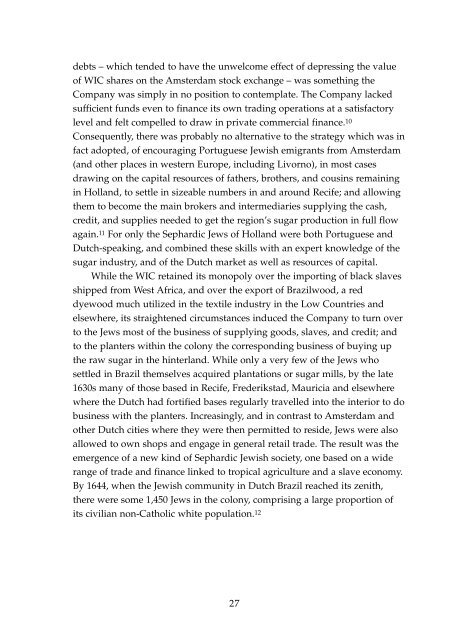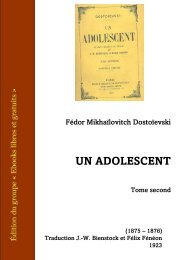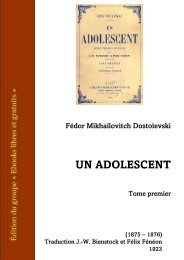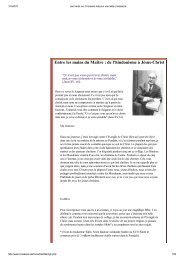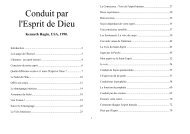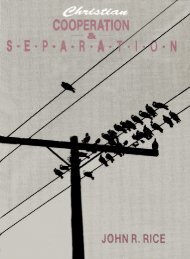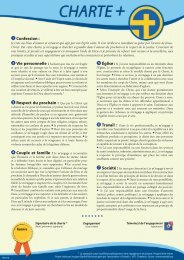The Expansion of tolerance
Create successful ePaper yourself
Turn your PDF publications into a flip-book with our unique Google optimized e-Paper software.
debts – which tended to have the unwelcome effect <strong>of</strong> depressing the value<br />
<strong>of</strong> WIC shares on the Amsterdam stock exchange – was something the<br />
Company was simply in no position to contemplate. <strong>The</strong> Company lacked<br />
sufficient funds even to finance its own trading operations at a satisfactory<br />
level and felt compelled to draw in private commercial finance. 10<br />
Consequently, there was probably no alternative to the strategy which was in<br />
fact adopted, <strong>of</strong> encouraging Portuguese Jewish emigrants from Amsterdam<br />
(and other places in western Europe, including Livorno), in most cases<br />
drawing on the capital resources <strong>of</strong> fathers, brothers, and cousins remaining<br />
in Holland, to settle in sizeable numbers in and around Recife; and allowing<br />
them to become the main brokers and intermediaries supplying the cash,<br />
credit, and supplies needed to get the region’s sugar production in full flow<br />
again. 11 For only the Sephardic Jews <strong>of</strong> Holland were both Portuguese and<br />
Dutch-speaking, and combined these skills with an expert knowledge <strong>of</strong> the<br />
sugar industry, and <strong>of</strong> the Dutch market as well as resources <strong>of</strong> capital.<br />
While the WIC retained its monopoly over the importing <strong>of</strong> black slaves<br />
shipped from West Africa, and over the export <strong>of</strong> Brazilwood, a red<br />
dyewood much utilized in the textile industry in the Low Countries and<br />
elsewhere, its straightened circumstances induced the Company to turn over<br />
to the Jews most <strong>of</strong> the business <strong>of</strong> supplying goods, slaves, and credit; and<br />
to the planters within the colony the corresponding business <strong>of</strong> buying up<br />
the raw sugar in the hinterland. While only a very few <strong>of</strong> the Jews who<br />
settled in Brazil themselves acquired plantations or sugar mills, by the late<br />
1630s many <strong>of</strong> those based in Recife, Frederikstad, Mauricia and elsewhere<br />
where the Dutch had fortified bases regularly travelled into the interior to do<br />
business with the planters. Increasingly, and in contrast to Amsterdam and<br />
other Dutch cities where they were then permitted to reside, Jews were also<br />
allowed to own shops and engage in general retail trade. <strong>The</strong> result was the<br />
emergence <strong>of</strong> a new kind <strong>of</strong> Sephardic Jewish society, one based on a wide<br />
range <strong>of</strong> trade and finance linked to tropical agriculture and a slave economy.<br />
By 1644, when the Jewish community in Dutch Brazil reached its zenith,<br />
there were some 1,450 Jews in the colony, comprising a large proportion <strong>of</strong><br />
its civilian non-Catholic white population. 12<br />
27


